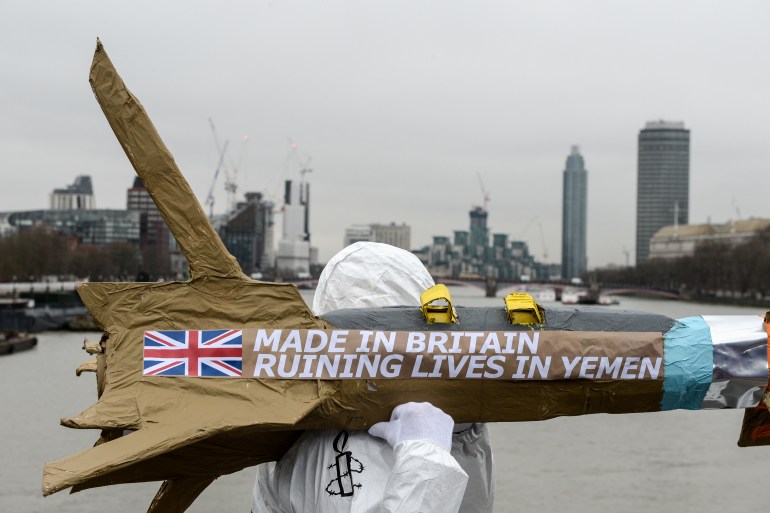Philip Collins wrote that Britain should stop selling arms to Saudi Arabia. He said in his column in The Times that "Britain's brave new foreign policy punishes rogue states, but our trade policy is mocked with those good intentions."
He recalled that International Trade Minister Lise Truss acknowledged this week that the weapons that Britain had sold to Saudi Arabia were used in violation of international humanitarian law in Yemen.
He added that this was not, of course, the wording she said in the House of Commons, and she cited the ruling of the Court of Appeal in Riyadh that there were "isolated incidents" of unlawful airstrikes.
The author scoffed at her saying that "these apparently unlawful incidents were so isolated, that it was now time for Britain to resume granting licenses to export arms and military equipment to the Saudis."
On the other hand, he referred to what Truss’s counterpart in the shadow government, Emily Thornberry, said was correct in describing this admission of guilt as “morally unacceptable.”
The writer suggested that Saudi Arabia is the big market for British weapons, which account for nearly half of all sales, and that it would be naive to turn a blind eye to the place where these weapons are used, referring to Yemen.
He commented on the United Nations reports in describing Yemen as the worst human-made humanitarian catastrophe, that this matter was already known, and now we have the testimony of the Minister of International Trade in this regard that some of these deaths were committed by British serial killers in their hands.
Shameful tradition and
continued that Britain had done this many times before, and that the war in Yemen is the latest incident in a "shameful tradition" in which British weapons were used in Bahrain, Libya, Algeria, Indonesia and the Democratic Republic of the Congo, to name a few, by the regimes that killed their people .
He pointed out that there are always two unconvincing arguments promoted by supporters of liberal realism in the arms trade, one of which is outright economic, and the other is immoral and realistic. He saw no need to participate in this brutal trade.
Collins added that despite what these realists say there will be no moral progress in the world simply because Britain stops providing weapons to Saudi Arabia, and this is true, but he believes that Britain should be the best possible country, and that if selling weapons to be used against civilians in Yemen is wrong , This error will not correct the fact that someone else is ready to do so.
He added that China has started selling weapons to countries such as Iran, Venezuela, Sudan and Zimbabwe, and the United States, which supplies a third of the world's weapons, continues to sell to Saudi Arabia, its largest customer. But the morally unacceptable decisions of China and the United States do not compel Britain to do the same.
Collins concluded his article that the reputation of the constant advocacy of these liberal democratic values is a valuable currency in diplomacy, and he will hear Britain's voice as a nation that lives up to its faith. The clarity of this voice is lost if we sell weapons to people who commit genocide in Yemen. Even if these incidents are isolated, they are not sufficiently isolated.

